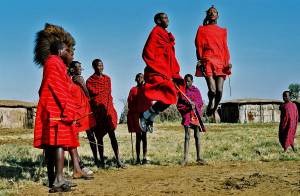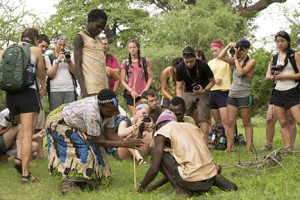Karibu Africa!!!!
Planning to visit Africa on volunteer mission, vacation or just a recreational time away from home?
Safari ya Africa Volunteer and Humanitarian tourism program will leave your Volunteer, Visit or Vacation in Africa with unforgettable life changing experience as you Join Street Shepherds efforts in transforming the future of Africa.
Derived from the Swahili word “Safari” meaning a journey with purpose, a journey with mission, Safari ya Africa is a humanitarian tourism program designed to provide volunteers with authentic African experience as they interact with the members of our community. Our program is intended to help volunteers participate in saving, changing and inspiring the lives of the less fortunate children in our communities as they serve our our communities on their volunteer missions. It a tourism and adventure program about the people for the people. With Safari ya Africa, volunteers and Tourists will have a great opportunity to experience the authentic everyday life and culture of the locals; help the needy, while having an insight into the real life of Africa.
However the best part in this program is the really experience that our participants will have as they are guided by young resident guides trained by highly experienced tour guides in our tourism destinations. We believe that your visit to our cultural destinations will bring much inspiration with unforgettable memories as you get to learn different cultures from the young generation that motivates many children and youths to embrace their beautiful cultures and be able to pass it on to the next generation. This way our children and grandchildren will as well learn about their cultural traits at very young age and revive our precious traditional morals, taboos, and traditions, hence promote our beautiful culture to the world.
What is Humanitarian Tourism?
Humanitarian tourism is a novel type of tourism previously unheard of in many parts of the world, encompassing the elements of exotic holidays and humanitarian mission. The goal of these unique journeys is to provide travelers with an authentic experience of the beauties of Africa and its everyday life, and have a lively time of relaxation. With Safari ya Africa participants will have an amazing time and have an authentic African experience of a lifetime, something that is nearly incomparable to classic and conventional trips. During the days of the excursion, thanks to Safari ya Africa Guides’ immense knowledge of their communities, travelers will have a chance to explore, under safe conditions, the aspects of African life and tourist sights that are not accessible for an average visitor.
Participants in our Safari ya Africa Program will have a great opportunity to meet and cooperate with the locals, take part in their everyday lives and implement with them the simple development projects that match Street Shepherds’ objectives serving a compassionate purpose like helping in renovating and painting orphanages, renovating a health-care institution, lending a hand with simple construction jobs as well as purchasing and donating items to those in need.
They will also have a chance to visit orphanages, Schools, Children care centers, and institutions that are supported or partly run by Street Shepherds Africa including sessions with Street Children in our local communities that are highly in need of our inspiration to help them in the process to get off streets and pursue their life dreams. Of course, becoming part of some characteristically “African situations” is also inevitable. Even the accommodation serves the purpose of establishing direct contact: the travelers are housed in welcoming hostels; home stays lodges and private homes living and experiencing the real African life that will meet their expectations unlike conventional hotels, hence providing them with an insight into African ways of life (Culture).
.
Traveling to Tanzania for vacation or humanitarian mission? Below are among the most important travel tips one should be aware of while preparing to take off to Tanzania.
LANGUAGE
English is widely spoken but a few words of Swahili can be useful and will be appreciated greatly by locals.
MONEY
Major foreign currencies – particularly US$ – and travelers cheques are accepted and are convertible at banks and bureau de changes in the main towns and tourist areas. Credit cards are not widely accepted and carry poor exchange rates. Some banks in Arusha, Dar es Salaam and Moshi offer ATM facilities against international credit cards, but ATMs are not available elsewhere. Visitors may be expected to pay in foreign currency for game parks. Don’t change money on the streets.
HEALTH
Yellow fever vaccination is no longer compulsory. Malaria is endemic but is preventable: use insect repellent, cover up at sundown, sleep under a mosquito net and take anti-malaria prophylactics as advised by your doctor. Bring prescription medicines, spare glasses, contact lenses and solution as well as sunscreen, a first aid kit, cream for bites/stings and diarrhea remedy. Drink only boiled or bottled water, bottled or canned drinks, avoid ice cubes and salads.
HIV/Aids is widespread, especially in the main tourist areas.
CLIMATE
Generally dry and hot with cool nights/mornings June-October; short rains November to mid-December; long rains March-May but the seasons may vary. The coastal strip is hot and humid all year round. Temperatures on Mount Kilimanjaro and Meru drop to below freezing.
CLOTHES
Pack lightweight, washable clothes plus a sweater for early morning game drives, as well as a sun hat, sunglasses and sunscreen. Long sleeves and trousers in light-colored fabrics help discourage insect bites. You can buy clothes in Dar es Salaam and Arusha.
Shorts for women are acceptable (but not too short!). Women should carry a wrap to cover legs in the villages and towns as revealing clothes can be offensive, especially in Zanzibar and Moslem’s areas. On the beach and within the confines of beach hotels normal swim wear is acceptable (but not nudity).
For climbing on Kilimanjaro or Meru, take thermal underwear, light layers, sweater, rain jacket, good socks and sturdy boots.
ON SAFARI
Distances in Tanzania are vast, and travel by road can be wearing. Plan to spend more time in fewer parks. You’ll see more and won’t return home exhausted. Keep your distance from animals and be quiet to avoid distressing the wildlife. Follow instructions of rangers or guides. Don’t leave your vehicle in the parks except in designated places. Keep to recognized tracks to avoid damaging vegetation.
PHOTOGRAPHY
Bring film (especially slide film) and batteries for your camera with you. Protect your cameras from dust and keep equipment and film cool. It is courteous to ask permission before photographing local people. If you intend to take a lot of people pictures, be sure to bring an instant camera with you so that you can leave a picture with the people you photograph.
INSURANCE
Take out travel insurance to cover loss of baggage or valuables, personal accident and medical expenses.
TRAVEL WITH CHILDREN
Tanzanians love children and are especially helpful to mothers. However, canned baby foods, powdered milk and disposable nappies may not be available outside major towns.
VISAS
Check current requirements with the nearest Tanzanian High Commission, embassy or consulate, or your travel agent. Visas, if required, can be bought on arrival at all international airports and overland borders.
SECURITY
Tanzania is a generally safe country, but don’t invite temptation. Keep an eye on your belongings. Don’t walk in the towns or cities at night – take a taxi. Don’t carry cameras or large amounts of cash; beware of pickpockets. Use hotel safety deposit boxes to safeguard valuables and obtain a receipt. Leave valuable jewelery at home.
GIFTS
Don’t indiscriminately hand out pens, money and sweets like a wealthy Western Santa Claus – it just encourages begging. As anywhere, gifts should be given as a true expression of friendship, appreciation or thanks.
SHOPPING
The tourist areas and hotels sell a wide range of souvenirs, jewelry and trinkets.Don’t be afraid to haggle at roadside curio stalls.
TIPPING
Not obligatory, but a tip for exceptional service (max 10%) will be appreciated. $10 – $15 per day for driver or tour guide. An excessive tip can make it difficult for the next customer.
TIME
3 hrs + GMT.
ELECTRICITY
230V, but power failures, surges and troughs are common. Bring a universal adapter and a torch (flashlight) or headlamp.
CAR HIRE
Self-drive vehicles are available mainly for local running or tarmac use. 4×4 vehicles for safaris usually have to be hired with a driver.
DRIVING
On the left. An international license is required. Plan long safaris carefully, ensuring your vehicle is road worthy with two spare tires an operational jack and tool kit. Carry extra fuel, spares and water.
Tanzania’s Leading Travel and Tourism Destinations
Tanzania being among the most blessed Countries in Africa with a rich and diverse abundant natural and cultural attractions, gives her visitors with plenty of vacation, and recreation destinations inlcuding the world renown national parks and cultural heritage sites like, The Kilimanjaro National Park , Arusha National Park , Lake Manyara National Park , Ngorongoro Conservation Area “The Cradle of Mankind” , Serengeti National Park “The endless plains” , Tarangire National Park , and The World Cultural Tourism and Heritage Sites
With Safari ya Africa you can Create and design your own Volunteer or vacation itinerary to suit your volunteer or vacation mission in Africa. Please feel free to use our Tailor Made Volunteer Itinerary and we will be happy to make your volunteer session with us a life changing memory.



